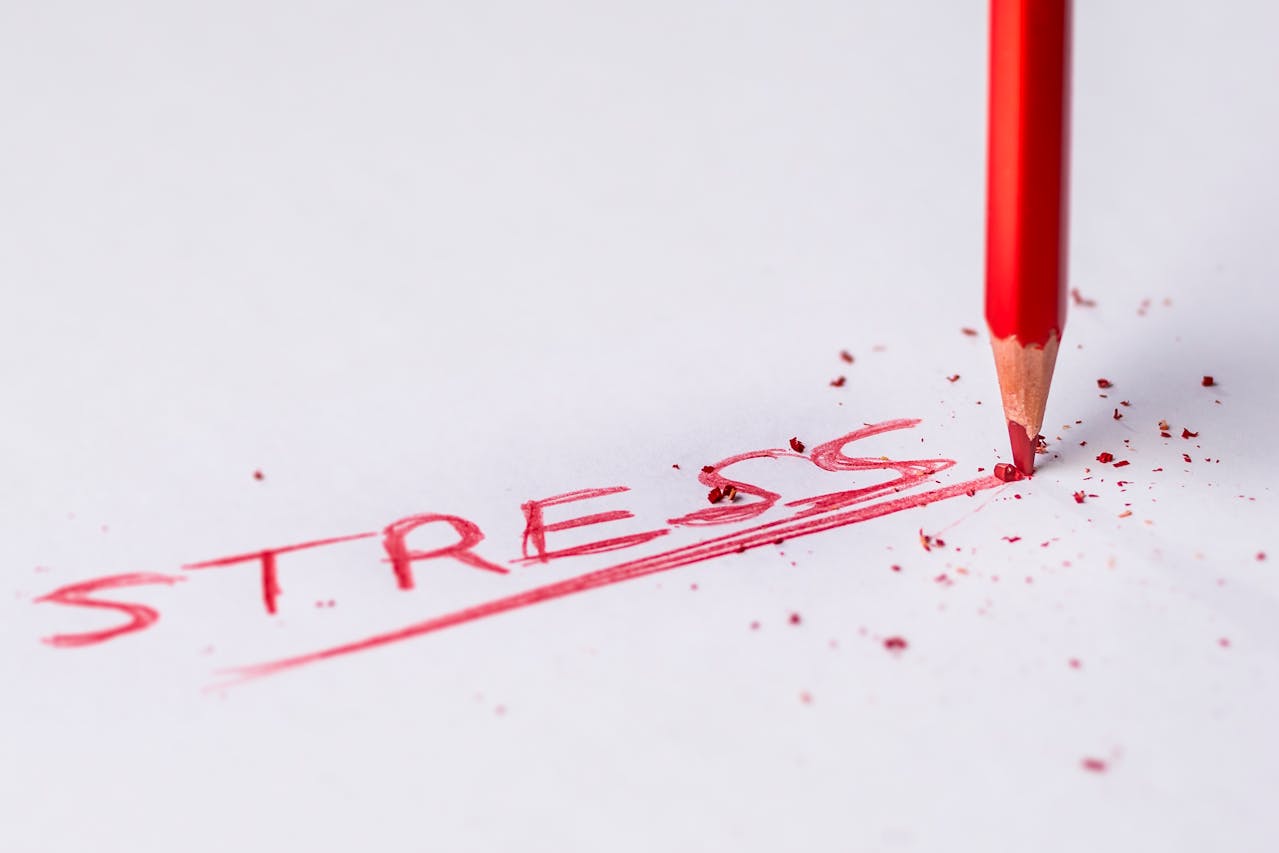How to Reduce Stress in Daily Life
Feeling stressed out is a common experience in today’s fast-paced world, but reducing stress is achievable with the right tools and mindset. Here are some practical strategies to help you manage daily stress and create a calmer, more balanced life.

Prioritize Self-Care and Well-Being
Develop a Routine
Creating a consistent daily routine can provide structure and help reduce stress. Set regular times for activities like eating, exercising, and relaxing to create a sense of control over your day.
Make Time for Rest
Sleep is vital for stress management. Aim for 7-9 hours each night, and consider a winding-down routine to signal your brain it’s time for rest. Reducing screen time and setting a consistent bedtime can make falling asleep easier.
Eat Well
A balanced diet not only fuels your body but also your mind. Nutrient-dense foods can help stabilize your energy levels and mood, helping you handle stress more effectively. Avoid excessive caffeine and sugar, which can contribute to irritability and anxious feelings.
Practice Mindfulness and Relaxation Techniques
Deep Breathing
Deep, controlled breathing is a simple yet powerful way to manage stress. Try breathing in for a count of four, holding for four, and exhaling for four. This exercise activates the body’s relaxation response, helping you feel calmer.
Meditation
Meditation can lower stress levels by encouraging a focus on the present moment. Start small with just five minutes of sitting quietly and focusing on your breathing. There are also many apps available with guided meditations for beginners.
Progressive Muscle Relaxation
Progressive muscle relaxation involves tensing and then slowly releasing each muscle group, starting from your toes and working up. This method helps release physical tension, which often accompanies stress, and encourages a state of calm.
Manage Your Time Effectively
Break Down Tasks
Large tasks can feel overwhelming. Break them into smaller, manageable steps, and tackle them one at a time. Prioritizing tasks also helps to avoid the feeling of being buried under a long to-do list.
Set Boundaries
Learning to say "no" is important in managing stress. Only take on what you can realistically handle and set boundaries for work and personal commitments. Communicate your limits politely but firmly to help others understand your need for balance.
Limit Multitasking
Multitasking can increase stress by making it harder to focus and finish tasks effectively. Instead, practice "single-tasking" by giving your full attention to one activity at a time. This can boost productivity and reduce stress.
Stay Active
Regular Exercise
Physical activity releases endorphins, natural chemicals that elevate mood and decrease stress. You don’t need to hit the gym every day; even a brisk 20-minute walk can help you feel more relaxed and focused.
Stretching and Yoga
Yoga combines physical movement with mindfulness, which can lower stress levels. Even just a few stretches during the day, especially if you work at a desk, can relieve muscle tension and improve circulation.
Spend Time Outdoors
Spending time in nature is proven to reduce stress and improve mood. Try incorporating a short walk outdoors into your day, or simply sit in a park or garden to enjoy the calming effects of fresh air and greenery.

Nurture Relationships
Connect with Loved Ones
Social support is one of the most effective buffers against stress. Reach out to friends or family members regularly, and make time for meaningful conversations. A simple call or message can help you feel connected and supported.
Join Groups or Classes
Connecting with others who share similar interests can be a wonderful way to reduce stress. Consider joining a local club or taking a class in something you enjoy. This provides a social outlet that can bring balance to your routine.
Practice Empathy and Gratitude
Taking a moment to appreciate others or express gratitude can shift your focus away from stress. Research shows that gratitude can improve emotional resilience, making it easier to handle challenges.
Declutter Your Environment
Tidy Up
A clean, organized space can reduce stress and create a sense of order. Start by decluttering your workspace and setting up a dedicated area for items you need daily. This minimizes distraction and allows for better concentration.
Create a Relaxing Space
Set up a corner in your home where you can unwind. Add soft lighting, calming colors, and some favorite items, like a plant, cozy blanket, or book. Having a peaceful place to retreat to can work wonders for stress relief.
Limit Technology
Constant exposure to screens can increase stress and overstimulation. Set boundaries for technology use, especially in the evenings. Designating certain times for screen-free activities can provide a mental break and improve relaxation.

Practice Positive Thinking
Reframe Negative Thoughts
When faced with a stressful situation, try shifting your perspective to find a silver lining or a new approach. For example, rather than thinking, "I can’t handle this," you might reframe it as, "I’ll take this one step at a time."
Celebrate Small Wins
Acknowledge small accomplishments throughout the day, even if they seem minor. Celebrating little victories reinforces positive thinking and encourages you to see progress rather than only challenges.
Avoid Perfectionism
Perfectionism can lead to high stress levels. Allow yourself to do things "well enough" and recognize that mistakes are a natural part of learning and growth. This approach will help you feel more relaxed and confident.
Use Relaxation Apps and Resources
Many apps are available that can guide you through stress-relief techniques, including meditation, breathing exercises, and even sleep sounds. Some popular options include Headspace, Calm, and Insight Timer. These resources are accessible and can help build relaxation habits into your daily life.
In Summary: Building Your Stress-Relief Toolkit
Reducing stress in daily life requires small, manageable changes that, over time, lead to lasting improvements. Incorporate one or two of these strategies each week and observe how they impact your mood and well-being. With practice, these habits will help create a more peaceful and fulfilling life.












